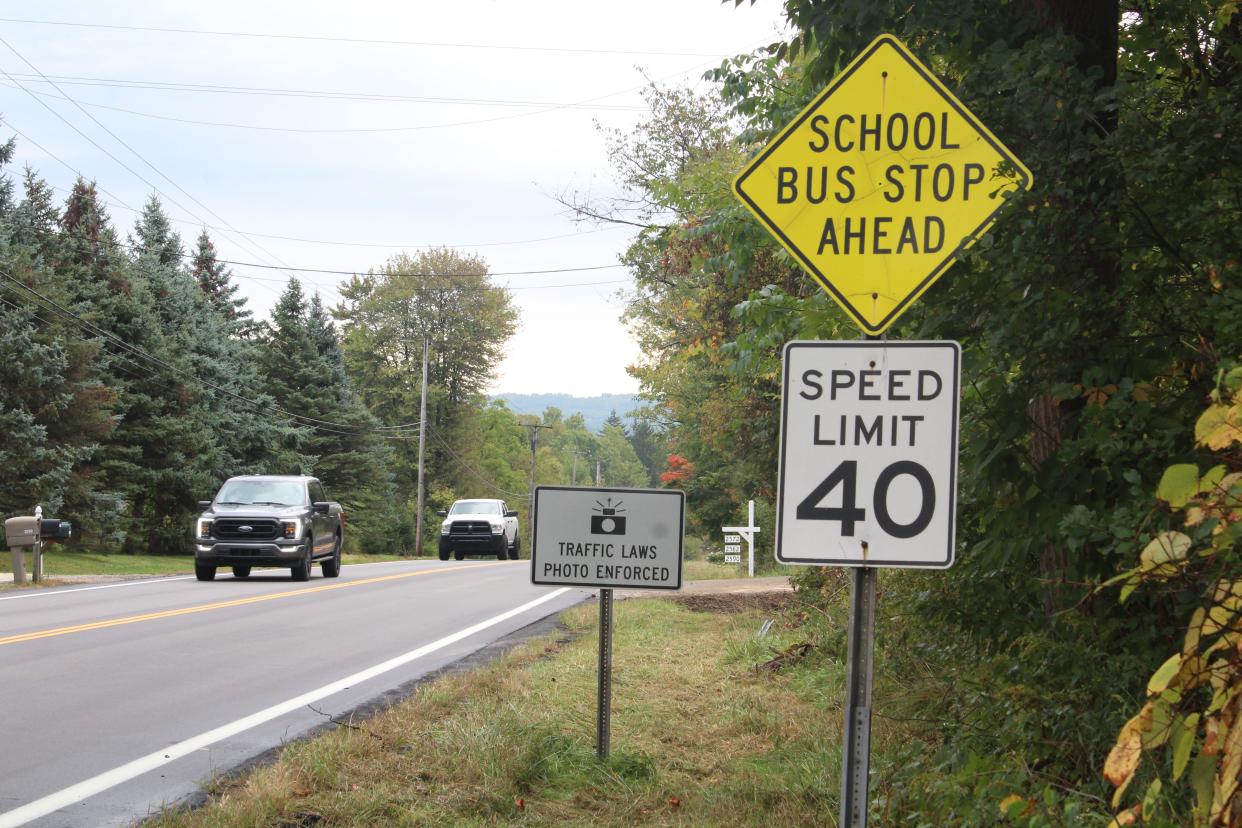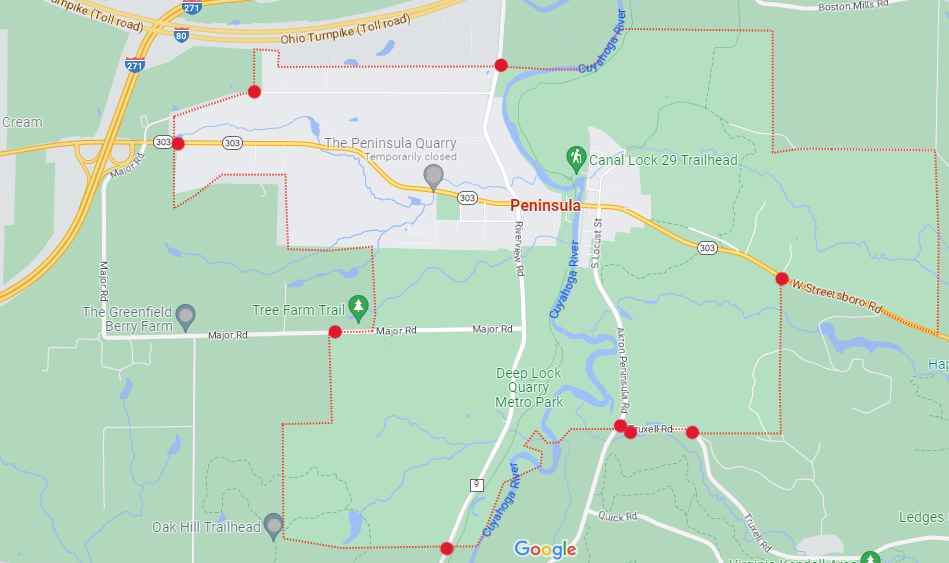Peninsula officials may seek registration blocks on unpaid speeding fines

With nearly $700,000 in uncollected civil penalties issued by police using handheld speed cameras, Peninsula village officials say they are ready to consider having the courts put registration blocks on those who haven't paid for speeding in the heart of the Cuyahoga Valley.
This comes after criticism of the village's speeding program from some residents and motorists.
Those who haven't paid will be referred to a collection agency, said Trevor Elkins, program administrator and president of the camera company, Targeting and Solutions Ltd., which operates the program.
Village officials on Tuesday during a council meeting asked Elkins to look into registration blocks after a councilor said he understands that other communities use registration blocks to collect unpaid fines.
What happens to drivers?: Over half of Peninsula photo traffic tickets are unpaid
Peninsula officials say program is a matter of safety
Two residents spoke briefly in favor of the program during village council's 40-minute meeting. One, who said he was a truck driver, said the program was a better alternative than pulling over drivers on the village's narrow roads, especially Route 303.
The man said he had been driving down Route 303 from Interstate 271 and came across a traffic stop, believing it to be an accident. The man said that so many cars were backed up on the narrow highway that he couldn't believe the police officer had felt it was safe to cite someone there.
"It's not only dangerous for police officers, it's dangerous for the person that the ticket's being issued to. Route 303 is probably the most dangerous route in our town to write a ticket, definitely," Peninsula Mayor Daniel Schneider said later.
Editorial: $1.3M and counting. Peninsula’s speeding program stalks public to generate cash
Schneider also said a survey showed the majority of drivers were speeding on village roads and noted a driver had been caught earlier this summer traveling 118 mph on Akron-Peninsula Road, though that citation was issued in the traditional manner.
While the program has been a major windfall for the village, whose annual budget last year was only around $1 million, village officials said money is not the program's goal.
"Speeding is breaking the law. I know some people don't think that," said Schneider. "You have a 10 mile hour grace period ... If you want to put us out of business, stop speeding."
How Peninsula's speed enforcement program works
Since April, when the program began, more than 8,900 citations were mailed to vehicle owners after police using the cameras recorded them exceeding the speed limit by 11 mph. Of that amount, about 4,000 have been paid, equaling $614,702, leaving about 4,800 citations unpaid.
The village gets 60% of the revenue, with the remainder going to Targeting and Solutions Ltd.
Out of around $1.3 million in fines levied, the village received about $369,000 while Targeting and Solutions Ltd. received roughly $245,000. That leaves about $684,000 remaining to be collected.

Tickets are issued at different amounts for varying speeds. Vehicles traveling 19 mph or less over the speed limit can get a $150 ticket. It is $200 for 20 to 29 mph and $250 for 30 mph or more.
Unlike regular traffic citations, photo enforcement citations are civil penalties that do not add points to motorists' driving records.
Eric Marotta can be reached at emarotta@gannett.com.
This article originally appeared on Akron Beacon Journal: Peninsula sees windfall from speeding enforcement, defends program

